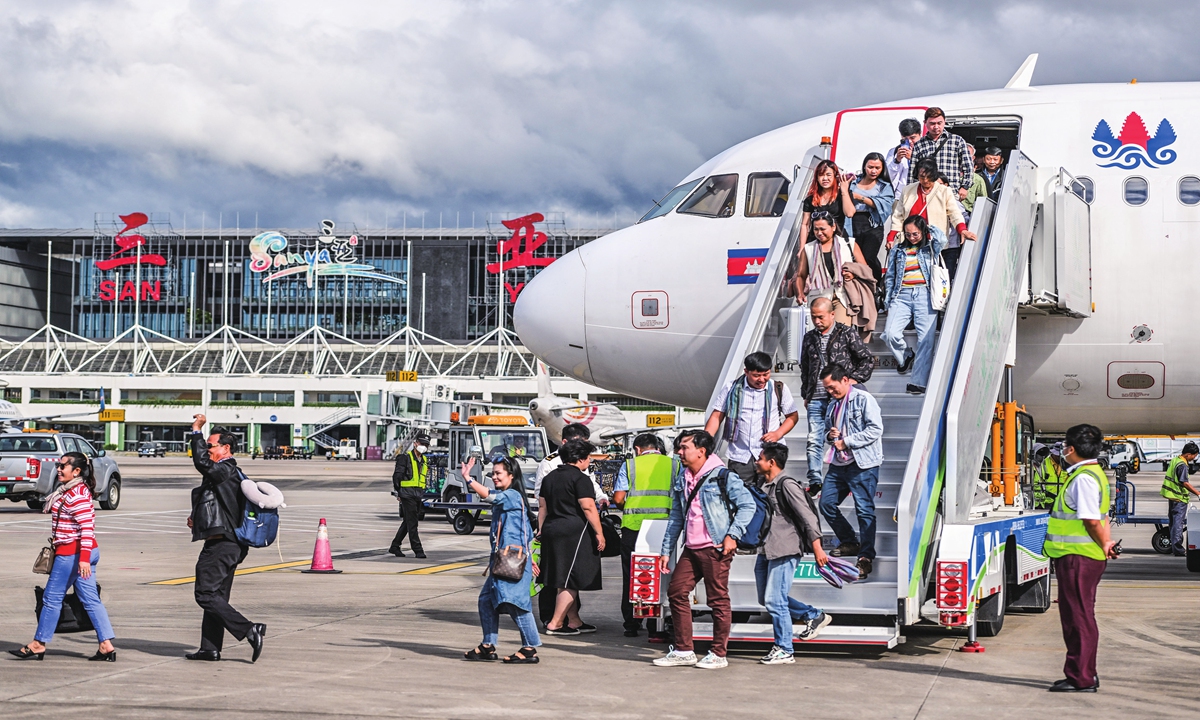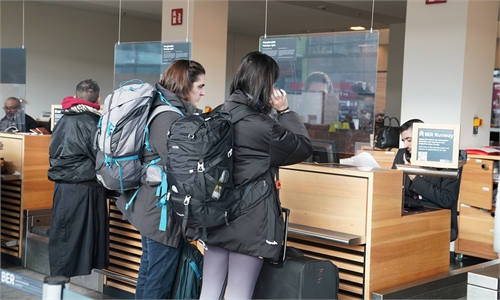China concludes mutual visa-exemption agreements covering different passports with 157 countries: FM

Passengers taking flight KR9755 from Cambodia's Phnom Penh International Airport arrive at Sanya Phoenix International Airport in South China's Hainan Province on December 1, 2023. Photo: cnsphoto
China has concluded mutual visa-exemption agreements covering different passports with 157 countries, reached agreements or arrangements with 44 countries to simplify visa procedures, and achieved comprehensive mutual visa exemption with 23 countries, Mao Ning, a spokesperson for the Chinese Foreign Ministry said on Friday.
In addition, more than 60 countries and regions offer visa-free or visa-on-arrival treatment to Chinese citizens, making it more convenient for Chinese citizens to travel on the go, the spokesperson added.
The remarks came after China announced on Thursday to waive visa requirements for citizens from six European countries, including Switzerland, Ireland, Hungary, Austria, Belgium and Luxembourg, signaling the country's commitment to attract more foreign visitors, effective on March 14.
The move is seen as one that will boost inbound tourism, serving as a primary facilitator for foreign tourists entering China by removing a major hurdle.
During the just passed Spring Festival of the Year of the Dragon, thanks to the resumption of air routes and the mutual visa-exemption policy, the number of Chinese citizens traveling abroad and the number of foreign citizens traveling to China increased significantly.
The number of Chinese tourists visiting Singapore, Malaysia and Thailand has basically returned to the level of the Spring Festival in 2019. The number of visitors from Singapore, Malaysia and Thailand to China has increased by 15 percent compared with the Spring Festival in 2019, which has greatly promoted friendly exchanges and people-to-people bonds, Mao said.
The Chinese government has taken concrete measures to enhance inbound and outbound travel.
On Thursday, the State Council revealed plans to improve payment services for international consumers at various tourism and entertainment venues, both online and offline. The People's Bank of China, China's central bank also stressed to continue enhancing mobile payment convenience for foreigners and to optimize the environment for using bank cards and cash.
On March 1, the central bank guided Chinese payment platforms to raise the single transaction limit for foreign nationals using mobile payment services from $1,000 to $5,000 and the annual transaction limit from $10,000 to $50,000, amid efforts to improve payment convenience.
Global Times


